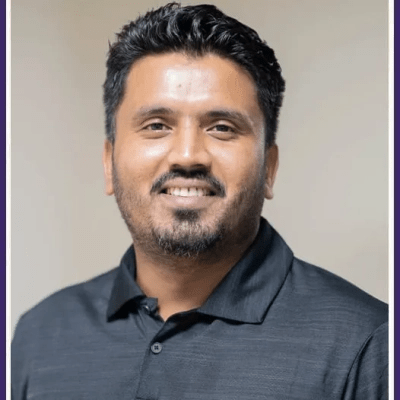Discover a wealth of leadership wisdom curated from top business minds. This article presents a diverse range of leadership resources and strategies, from transforming ADHD challenges into strengths to creating psychological safety for team success. Drawing on expert insights, these resources offer practical approaches to enhance your leadership skills and drive business growth.
- Transform ADHD Challenges into Leadership Strengths
- Ask Your Team How They Want to Be Led
- Build Trust to Accelerate Leadership Success
- Become a Multiplier to Amplify Team Potential
- Conquer Tech Fears to Lead with Confidence
- Focus on Trust to Overcome Team Dysfunction
- Develop Non-Anxious Leadership Presence
- Embrace Real-Time Marketing for Proactive Leadership
- Align Team with Simple Strategic Planning
- Shift Above the Line for Conscious Leadership
- Adapt Leadership Style Using Behavioral Assessments
- Navigate Uncertainty with Honest, Decisive Leadership
- Practice Five Principles for Effective Leadership
- Apply Seven Habits for Personal Leadership Growth
- Focus on Practical Business Growth Strategies
- Create Psychological Safety for Team Success
- Learn from Unfiltered Leadership Journeys
- Explore Deep Conversations Across Diverse Fields
Transform ADHD Challenges into Leadership Strengths
Living with ADHD taught me early on how easy it is to hear but not listen. Dale Carnegie’s “How to Win Friends and Influence People” became the resource that helped me transform that challenge into one of my greatest strengths.
Early in my career, ADHD often manifested as distraction and impatience. In fast-moving meetings or high-stakes conversations, I would find myself ready to respond before truly listening. Carnegie’s book challenged me to slow down and recognize that influence is not about having the quickest answer, but about making people feel heard and valued.
Over time, I developed a set of practices that changed everything for me as a leader and now as a coach. I learned to listen with the intent to understand rather than to reply. I began paraphrasing what I heard to confirm clarity and show care. I embraced the power of the pause, allowing space before jumping in, and I made questioning for understanding a habit. I also discovered the tremendous benefit of taking notes while listening, which not only helped me stay focused but showed others that their words mattered enough to be captured.
Perhaps the most difficult but rewarding skill was learning to sit with the discomfort that comes when a pause feels long. At first, silence felt like pressure. But I came to realize, in my work with aspiring leaders, those moments of stillness have led to clarity, deeper connection, and insights that would have been missed if I had rushed.
These practices helped me manage the challenges of ADHD, but they also became leadership strengths. They allowed me to lead with greater presence, connect more deeply, and build trust.
Carnegie’s reminder that “a person’s name is to that person the sweetest sound” is just one example of how small shifts in attention and respect can change the outcome of a conversation. For me, the bigger breakthrough was realizing that when I listen with intention, I can also live out what I now teach others: the Platinum Rule, treating people the way they want to be treated.
For aspiring leaders, the lesson is clear. You don’t need to have all the answers, but you do need to bring your full presence. In a world that prizes speed, the simple act of slowing down, listening, pausing, taking notes, and clarifying is what builds trust and influence. Carnegie’s wisdom gave me the framework, my journey with ADHD gave me the urgency to practice it, and together they shaped how I lead and coach today.

Gearl Loden, Leadership Consultant/Speaker, Loden Leadership + Consulting
Ask Your Team How They Want to Be Led
One of the most powerful resources I recommend to aspiring leaders isn’t found on a bookshelf or in a podcast library; it’s the voices of the very people you will be leading. Too often, new leaders feel pressured to arrive with all the answers or to model themselves after someone else’s leadership style. But the truth is, the most valuable insights into how to lead effectively come directly from your team. By asking your people, “How do you want to be led?” you not only gain practical guidance, but you also build trust and demonstrate humility from the very beginning.
This practice had a profound impact on my own leadership journey. When I transitioned into leadership roles, I quickly learned that every team, and even every individual within a team, responds differently. Some thrive under close mentorship, while others crave independence and ownership. By opening the conversation and inviting people to share their preferences, I was able to tailor my leadership to fit their needs rather than forcing them to adapt to mine. This approach not only accelerated my transition but also created stronger engagement, accountability, and performance within the team.
What I discovered is that leadership is not about authority; it’s about partnership. By seeking out your team’s perspective on how they want to be led, you begin your journey with empathy, collaboration, and a willingness to grow alongside them. That mindset has shaped my entire philosophy of leadership and continues to influence how I coach and guide leaders today.

Alan Hoekman, Business Coach | Speaker | Author, Alan Hoekman LLC
Build Trust to Accelerate Leadership Success
One book I always recommend to aspiring leaders is “The Speed of Trust” by Stephen M.R. Covey.
Leadership is influence, and at the core of influence is trust. What struck me about this book is the idea that trust isn’t just a “soft skill” — it’s an economic driver. High trust speeds up everything. Low trust slows everything down. Once I understood that, I started to look at every interaction differently.
In corporate America, I often found myself as the only woman — or the only Black woman — in the room. There were moments when my expertise was questioned before I even spoke. Early in my career, I tried to prove myself through over-preparation and perfection. But this book shifted my perspective: trust is built not just through flawless delivery, but through consistency, transparency, and keeping your word. That’s what people remember.
As an entrepreneur, “The Speed of Trust” has been just as powerful. When you’re building a business while raising three kids and working a demanding 9-to-5, you don’t have time for friction. Trust allows you to move faster — with clients, with collaborators, and with your team. I’ve seen how a single conversation rooted in trust can accelerate opportunities that might have taken months to develop otherwise.
One example: during my early launches, I didn’t have a massive audience or a polished machine behind me. What I did have was trust. Women joined my program because they trusted my journey, my honesty about the challenges, and my commitment to walking with them through theirs. That trust created momentum, referrals, and results that no marketing tactic alone could deliver.
The book reminded me that trust is a currency. You can spend it, you can lose it, or you can invest in it and watch it multiply. For me, it’s the invisible advantage that has shaped both my leadership style and the way I do business.
That’s why I recommend it: because aspiring leaders don’t just need strategies. They need trust. When people trust you, everything else moves faster.

Janae Nicole, Career Strategist, Business Coach & Talent Acquisition Leader, JNL Career Services & CorpreneuX
Become a Multiplier to Amplify Team Potential
“Multipliers” by Liz Wiseman is a must-read for every aspiring leader. Her research uncovers how great leaders multiply their employees’ potential and performance. She also explores all the ways we accidentally diminish others. Wiseman has a free assessment tool related to the book and includes practical ways you can become a multiplier in her book.
Here are a few ways her work has positively impacted me:
- I used her experiments in my work and personal life. One evening, I spent the entire time responding to my kids only with questions. It led to a deep conversation with my daughter about friendships. It made me realize how much I talk instead of listen.
- I pulled feedback prompt questions from the book and used them in one-on-one conversations with my employees. Those conversations uncovered ways I could better support and value every team member.
- I stopped talking as much in meetings and gave more space to others to share their thoughts and ideas, leading to more innovation on the team.

Jennifer Recla, Leadership Coach & Consultant, Recla Coaching & Consulting
Conquer Tech Fears to Lead with Confidence
As a noted non-techie, I’ve recently started exploring the tech space through podcasts — specifically “Hard Fork” from The New York Times. It’s become my go-to for making sense of headlines that used to feel overwhelming or irrelevant. From there, I can make better-informed decisions about which tools are worth paying attention to and which are likely just passing fads.
The impact on my leadership has been greater than I expected. I may not be coding or testing every new tool myself, but I now recognize the terms, trends, and challenges that are shaping the industry. That baseline knowledge helps me ask smarter questions, engage in conversations I might have avoided before, and ultimately lead with more confidence. And because the content comes from a source I trust, I feel like I’m getting a balanced view rather than hype.
Yes, this is a recommendation for a great podcast — but there’s also a broader lesson here. Growth comes from focusing on your weakest areas. It’s not always the most enjoyable or natural thing to do, but today it’s more achievable than ever. Between podcasts, online courses, and countless free resources, there’s really no excuse not to tackle the topics that intimidate you most.
For me, that’s technology. For you, it might be finance, public speaking, or something else entirely. But the principle holds: when you invest in understanding your blind spots, even at a basic level, the payoff in your professional life can be substantial.

Jim Hickey, President, Perpetual Talent Solutions
Focus on Trust to Overcome Team Dysfunction
One book that I always recommend to aspiring leaders is “The Five Dysfunctions of a Team” by Patrick Lencioni. It’s a simple read, but extremely impactful. It helped me gain a new perspective to see not just how my team functions, but how I function within it. At Increased.com, working with new startups, I have seen firsthand how unresolved trust issues and fear of conflict can take down even the most brilliant team.
This book has helped me shift from managing tasks to managing trust. That insight helped me change how I build executive teams, focusing less on resumes and more on relational dynamics. I’d recommend anyone stepping into leadership to give this book a read before you build your next team. It might save you years of growing pains.

Jason Hishmeh, CTO, Entrepreneur, Business & Financial Leader, Author, Cofounder, Increased
Develop Non-Anxious Leadership Presence
In my opinion, the most powerful leadership book available is “A Failure of Nerve” by Edwin Friedman. It offers timeless wisdom on how the health of any family, organization, or society depends on the non-anxious, non-reactive presence of the leader. The book covers everything we witness daily in leadership, such as the fallacy of expertise (preoccupation with data), the fallacy of empathy, crisis, sabotage, and societal regression. However, it returns so much potential power to the leader that, while confronting, it is also a hopeful and empowering book.
This book significantly impacted my journey as a senior leadership coach. After reading it for the first time a decade ago, it helped me understand that the level of emotional maturity and strength — versus anxiety or neurosis — of the leader is the most important part of any leadership development or organizational turnaround. Everything hinges on that. It has given me an acute understanding of true leadership and how to recognize and build it, both in oneself and others.

Katherine Hosie, CEO Leadership Resilience Coach, Powerhouse Coaching
Embrace Real-Time Marketing for Proactive Leadership
I always recommend to aspiring leaders, especially in marketing or communications, “The New Rules of Marketing & PR” by David Meerman Scott (6th edition). It helped me transition from the old-school idea of waiting for media coverage to a much more proactive, audience-first mindset. People want direct, useful insights rather than fluff filtered through press releases. That insight pushed me to focus more on owned content, like launching a “Data Drop” blog series that gave journalists real statistics they could actually use.
But what really stuck with me was how the book talks about speed and real-time response. I started running short daily check-ins with the team just to spot news we could jump on, and I gave junior staff full green lights to pitch if they saw a good fit. That small change not only made our content faster and more relevant, it also gave newer team members real ownership.

Matias Rodsevich, Founder & CEO, PRLab | B2B Tech PR Agency
Align Team with Simple Strategic Planning
I highly recommend the EOS Model, which completely transformed my approach to strategic planning about eight years ago. We now use a simple two-page strategic document with eight key questions that we revisit quarterly, keeping our entire team aligned on what matters most. This resource fundamentally changed how we operate and directly contributed to increasing our company’s profitability from 3% to 20% over time.

Tom Malesic, CEO, EZMarketing
Shift Above the Line for Conscious Leadership
I recommend the book “The 15 Commitments of Conscious Leadership” by Jim Dethmer, Diana Chapman, and Kaley Warner Klemp. This book provided a simple yet effective check that changed how I lead: “Above the line or below the line.” Am I open and curious, or closed and defensive? That one question helps me shift from proving to learning, from blame to responsibility, and from tension to clarity. My thought for aspiring leaders is this: leadership shifts when you do.

Kamini Wood, Certified Life Coach, Kamini Wood
Adapt Leadership Style Using Behavioral Assessments
One resource I strongly recommend for aspiring leaders is using behavioral assessment tools such as the Predictive Index or the DISC profile. These tools gave me a deeper understanding of my team’s strengths, weaknesses, and communication preferences. For example, I learned that some team members thrive on steady, repetitive work while others are energized by novelty and change. It also reshaped the way I communicate, recognizing that some prefer more relational conversation, while others value direct and concise communication. Adapting my leadership style to meet each individual where they are has been a game-changer. It not only improved team morale and performance but also taught me that great leadership is less about one style and more about flexibility and awareness.

Maritza Davila, Founder, Optimized 360
Navigate Uncertainty with Honest, Decisive Leadership
One resource I often recommend to aspiring leaders is the book “The Hard Thing About Hard Things” by Ben Horowitz. It’s a straightforward, unfiltered look at what it really takes to lead and grow a business, especially through challenges and uncertainty. In the real estate and operations world, a lot of leadership is about solving problems that don’t have easy answers, and this book captures that reality better than most.
What impacted me most was Horowitz’s focus on decision-making under pressure and his emphasis on being honest, decisive, and grounded even when outcomes are unclear. That mindset helped shape how I lead through key moments, whether it’s navigating development delays, handling tenant concerns, or making long-term investments. For anyone leading a team or building a company, it’s a resource that cuts through the fluff and speaks to what leadership actually looks like day to day.

Steve Mackey, Managing Member, Mack Industrial
Practice Five Principles for Effective Leadership
“The Leadership Challenge” by Barry Posner and James M. Kouzes is an exceptional leadership book that continues to inspire me. Their 5 principles of leadership — Model the Way, Inspire a Shared Vision, Challenge the Process, Enable Others to Act, and Encourage the Heart — are behaviors that leaders at all levels can build into their daily practice. I appreciate the simplicity of the model, although applying these principles does take practice. I often recommend this book to my clients who are building their leadership presence.

Molly Hetrick, Professional Development Coach, venture you LLC
Apply Seven Habits for Personal Leadership Growth
I highly recommend “The 7 Habits of Highly Effective People” by Stephen Covey to aspiring leaders. This classic book provides practical guidance on personal effectiveness and leadership. It has profoundly influenced my leadership journey by emphasizing principles such as proactivity, prioritizing important tasks, and fostering effective communication. Applying these habits has not only improved my decision-making but also enhanced my ability to inspire and motivate my team. This book has shaped my leadership style and helped me achieve lasting success. I believe its principles can empower aspiring leaders to overcome challenges and lead with purpose.

Jack Nguyen, CEO, InCorp Vietnam
Focus on Practical Business Growth Strategies
During my first year of running a business, I realized that many startup stories make entrepreneurs believe they can achieve the same level of success easily.
What they rarely discuss is survival bias, so I recommend practical podcasts, such as “Startups for the Rest of Us.” If you’re looking for an online community, IndieHackers is a great place to visit and get some feedback, too.
Using these platforms helped me step away from constantly spending far too much time reading a site that rhymes with TechCrunch and actually focus on growing my business. Today, my company has helped more than 3 million people build strong resumes and land better jobs, and we’re poised to continue growing.

Stephen Greet, CEO & co-founder, BeamJobs
Create Psychological Safety for Team Success
One resource I always recommend to aspiring leaders is the book “Leaders Eat Last” by Simon Sinek.
The biggest impact it had on my leadership journey was reframing leadership from being about authority or control to being about creating psychological safety and trust. The idea that leaders should “eat last” — literally putting the needs of their team before their own — changed how I approached decision-making.
For example, instead of focusing on immediate results, I started investing more in building an environment where my team felt safe to share ideas, admit mistakes, and take ownership. The surprising result? Performance improved naturally, not because I pushed harder, but because people felt supported and motivated.
The unique power of this resource is that it blends neuroscience, anthropology, and practical stories, making you see leadership not as a role but as a responsibility to protect and empower others. It reminded me that true leadership isn’t about being in charge — it’s about taking care of those in your charge.

Prabhu Raghavan, Advertising & Marketing Consultant, EDS FZE
Learn from Unfiltered Leadership Journeys
I recommend the podcast “The Diary of a CEO” hosted by Steven Bartlett. Steven does a wonderful job interviewing personalities who are generous in sharing their unfiltered life journeys. Society conditions people to believe that success comes easily for certain people because they’re essentially lucky. Many talented people who shaped society encountered unique challenges that molded their characters to take risks. “The Diary of a CEO” humanizes the guests, prompting audiences to forget what they do for a living. Instead, we learn what type of life experiences brought them to their present juncture. Those dialogues encourage people to reflect upon “who are you” versus “what do you do for a living.” It’s an exploration of the self while learning how we all play a part in society.

Sasha Laghonh, Founder & Sr. Advisor to C-Suite & Entrepreneurs, Sasha Talks
Explore Deep Conversations Across Diverse Fields
I recommend the Lex Fridman podcast to future leaders. It’s not just a source of information but a way of thinking. Lex has a unique ability to dive into deep conversations with people from the worlds of science, business, art, and even the military. By listening to him, I’ve learned the importance of asking the right questions, truly listening, and looking for meaning behind every decision. True leadership is not only about strategy and results but also about empathy, values, and the courage to make the right decisions even when it’s difficult.

Alexandr Korshykov, Founder & CEO, DreamX
